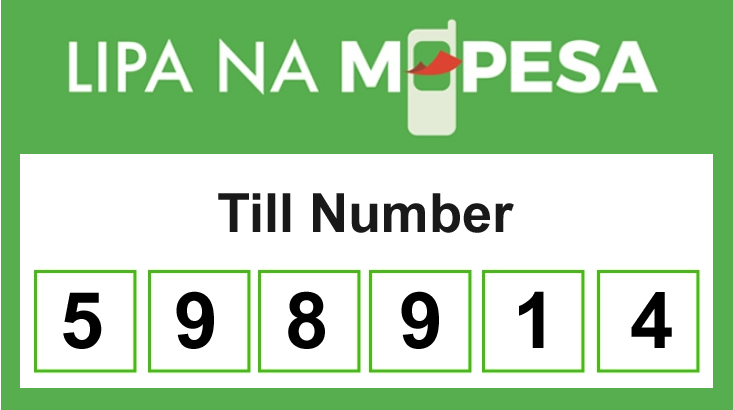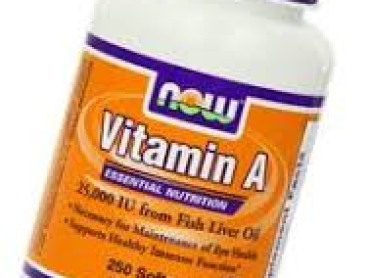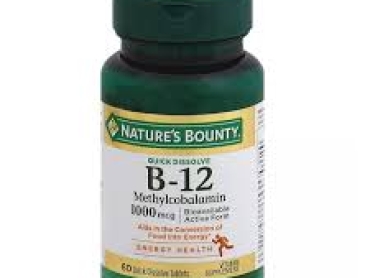What is Choline?
Firstly Choline is a nutrient we all require for optimal health. Although the body makes some, we need to get it from a diet to avoid deficiency. Secondly You will sometimes find it classified as a vitamin B, but it doesn’t actually belong to this group .
Thirdly Choline plays key roles in :
- Cellular health: most importantly it builds phospholipids that give structure to cell membranes
- Brain and nerve health: additionally it builds acetylcholine, a neurotransmitter essential for cognition, movement, and other vital functions
- DNA production: thirdly along with folate and vitamin B12
- Signaling: likewise it builds molecules that act as cell messengers
- Heart health: additionally it helps remove homocysteine, which raises the risk of heart disease
Snapshot
Proponents:
- Firstly it Helps prevent fatty liver
- Secondly it May improve cognition
- Thirdly Supports fetal development
- Similarly May help with asthma
- Finally it is Safe for children and pregnant women
Choline Foods & Deficiency
Daily Needs
Generally the Institute of Medicine has recently acknowledged choline as an essential nutrient. They recommend the following daily intakes :
- Adult men: 550 mg/day
- Adult females: 425 mg/day
- Pregnant women: 450 mg/day
- And in conclusion Nursing women: 550 mg/day
Deficiency Symptoms and Risk Groups
Most people don’t get enough choline in their diets. In the same vein possible symptoms of its deficiency include
- Poor memory and focus (cognitive dysfunction)
- Likewise Liver problems (including fatty liver)
- Generally Mood imbalances
- Muscle fatigue
- Finally Lower endurance in athletes
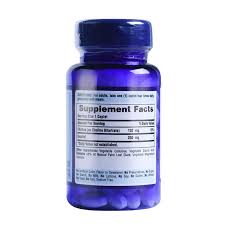
Luckily, the typical symptoms are rare, despite the widespread lower intake. This is likely due to the ability of our liver to make certain amounts of choline .
In addition groups of people at a higher risk of choline deficiency include:
- Postmenopausal women
- Chronic alcohol consumers
- Pregnant women
- People with certain genetic variants
- Athletes
- People on intravenous nutrition
Firstly it is an important methyl donor for various methylation reactions. Furthermore a diet is low in folate, another methyl donor, choline requirements increase .
Food Sources
Generally the best choline food sources include beef liver, eggs, chicken, and beans (Table 1) .
Table 1: Choline Food Sources
| Food | Serving size | Milligrams (mg) per serving |
% of Daily Value |
| Beef liver, fried | 3 ounces | 356 | 65 |
| Egg, hard–boiled | 1 large | 147 | 27 |
| Soybeans, roasted | ½ cup | 107 | 19 |
| Chicken breast, roasted | 3 ounces | 72 | 13 |
| Codfish, cooked | 3 ounces | 71 | 13 |
| Shiitake mushrooms, cooked | ½ cup | 58 | 11 |
| Red potatoes, baked | 1 large | 57 | 10 |
| Beans, kidney, canned | ½ cup | 45 | 8 |
For example, you would need to eat about 3 ounces of beef liver or 1-2 eggs daily to meet the daily requirements .
Choline Benefits
Likely Effective:
1) Fatty Liver
It builds phosphatidylcholine, which helps break down fats in the liver. Therefore, low choline levels can lead to fat accumulation in the liver .
In a large Chinese observational trial (over 56,000 people), higher intake of choline lowered the risk of nonalcoholic fatty liver disease (NAFLD) but only in normal-weight women.
In 54 healthy adults, low-choline diets raised the risk of fatty liver disease and other liver problems. Its introduction into their diets reversed these effects.
Additionally in Another trial with 57 adults confirmed that low-choline diets might cause fatty liver, especially in postmenopausal women.
Similarly people on total parenteral (intravenous) nutrition are at a higher risk of fatty liver due to its deficiency. Luckily doctors can successfully prevent this by adding intravenous choline .
In many animal studies, higher choline intake and its supplementation could :
- Prevent and reverse fatty liver
- Boost cholesterol metabolism
- Block oxidative damage and liver scarring
- Prevent cell mutations and liver cancer

Possibly Effective:
Generally the potential benefits in this section stem from low-quality clinical trials, animal, and cell-based studies. However they are not researched well enough to recommend its supplements for any of the below conditions.
2) Cognition
It builds the protective myelin sheath around neurons and restores the levels of acetylcholine. This effect may help keep cognitive decline at bay .
In two observational studies of 3,400 people, its intake was positively associated with cognitive performance .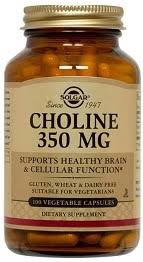
In studies on rats and mice, choline supplementation was able to :
- Reverse memory loss caused by prenatal iron deficiency
- Improve stroke recovery (with B vitamins)
- Enhance cognitive skills and coordination
- Protect the brain against seizure-induced damage
3) Choline On Asthma
In animal models of asthma, it reduced inflammation and oxidative stress while improving lung function .
4) Choline On Fetal Development
It is essential during fetal development, yet many pregnant women don’t have adequate intakes.
Brain Development and Cognition
Multiple reviews of human and animal trials have proclaimed it is a vital nutrient for fetal brain development. Furthermore optimal choline intake during pregnancy :
- Ensures proper brain structure and functioning
- May enhance memory and cognition
- Prevents birth defects and mental illnesses
In different animal trials, prenatal supplementation could :
- Enhance fetal brain development
- Stimulate the genes that control learning and memory
- Shield the offspring against brain damage
- Relieve inflammation
Alcohol consumption during pregnancy can cause a range of physical and mental disorders in the offspring, collectively known as fetal alcohol spectrum disorders (FASD).
5) Choline On Mental Health
A few studies have shown that it could help with bipolar disorder in children; it may be a useful addition to drug treatment .
In a small clinical trial, 5/6 patients with bipolar disorder experienced notable symptom improvements with choline therapy combined with standard treatment .
6) Choline On Weight Loss
Generally Many supplements are promoted to stimulate weight loss. However valid clinical research has debunked most of those claims. A healthy, calorie-controlled diet and increased physical activity remain your best allies in weight control .
Similarly in a clinical trial with 22 female athletes, its supplementation (2 g daily, 7 days before a competition) reduced body mass index (BMI) by 12% with no side effects on their performance .
According to an observational trial with over 3,200 subjects, lower dietary choline intake was linked with :
- Firstly More body fat
- Secondly Increased weight
- Thirdly higher body mass index
- Finally greater waist-to-hip ratio
In other words, people who consumed more of it were less likely to become obese.
Similarly study on obese mice confirmed the potential of choline to stimulate weight loss by enhancing mitochondrial function and fat burning .
However, a review of 50 clinical trials reported inconsistent effects on body composition .
Other
According to limited clinical evidence from low-quality clinical trials, it may also help with:
- Cystic fibrosis (rare genetic lung disease)
- Tardive dyskinesia (a movement disorder caused by antipsychotic drugs)
On the other hand there’s insufficient evidence to proclaim its supplements safe and effective for these conditions.
Choline Is Possibly Ineffective For
A couple of smaller, low-quality clinical studies have found no significant effects for:
- Different movement disorders (ataxia)
- Schizophrenia
- Athletic performance
- Memory loss in the elderly
Choline On Heart Disease and Stroke
Most importantly it supplies methyl groups essential for converting homocysteine to methionine. Similarly Low levels of it may thus lead to homocysteine buildup, which increases the risk of heart disease and stroke in some people .
In the same vein almost 4,000 African-American patients, higher intake lowered the risk of stroke .
On the other hand, increased consumption of foods rich in it raises the level of a toxic metabolite: trimethylamine–N–oxide (TMAO).
Additionally according to the data from over 120,000 adults, its increased intake was associated with up to 26% higher cardiovascular mortality (from heart disease and stroke) .
All in all, the effects of dietary choline on cardiovascular health are inconsistent, and a review of 50 clinical trials came to this conclusion. However Further research is warranted .
Choline On Cancer
Breast Cancer
Generally In two observational trial of over 4,000 women, higher intake was associated with lower rates of breast cancer .
Choline On Colon Cancer
Likewise in a Chinese study of 1700+ patients, the highest choline intake correlated with almost two times lower rates of colon cancer .
Prostate Cancer
Generally in an observational trial with over 45,000 men, those with the highest choline intake had 70% higher rates of lethal prostate cancer.
In the same vein Higher choline blood levels were associated with increased rates of prostate cancer in 1,500 patients .
Choline Dosage
Generally it is usually dosed within a range of 500 – 2000 mg/day.
However If you’re just starting out with its supplements, it’s wise to work with your doctor, start slow, and track your response over time.

